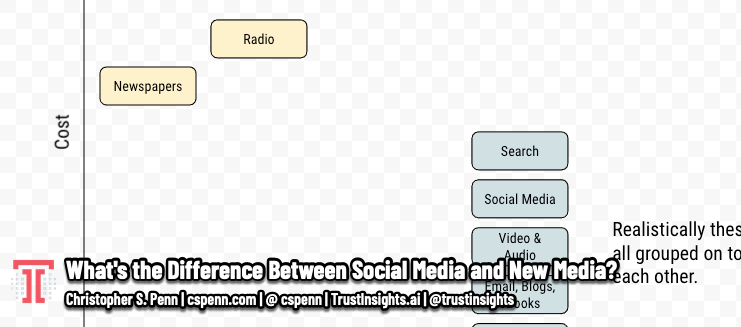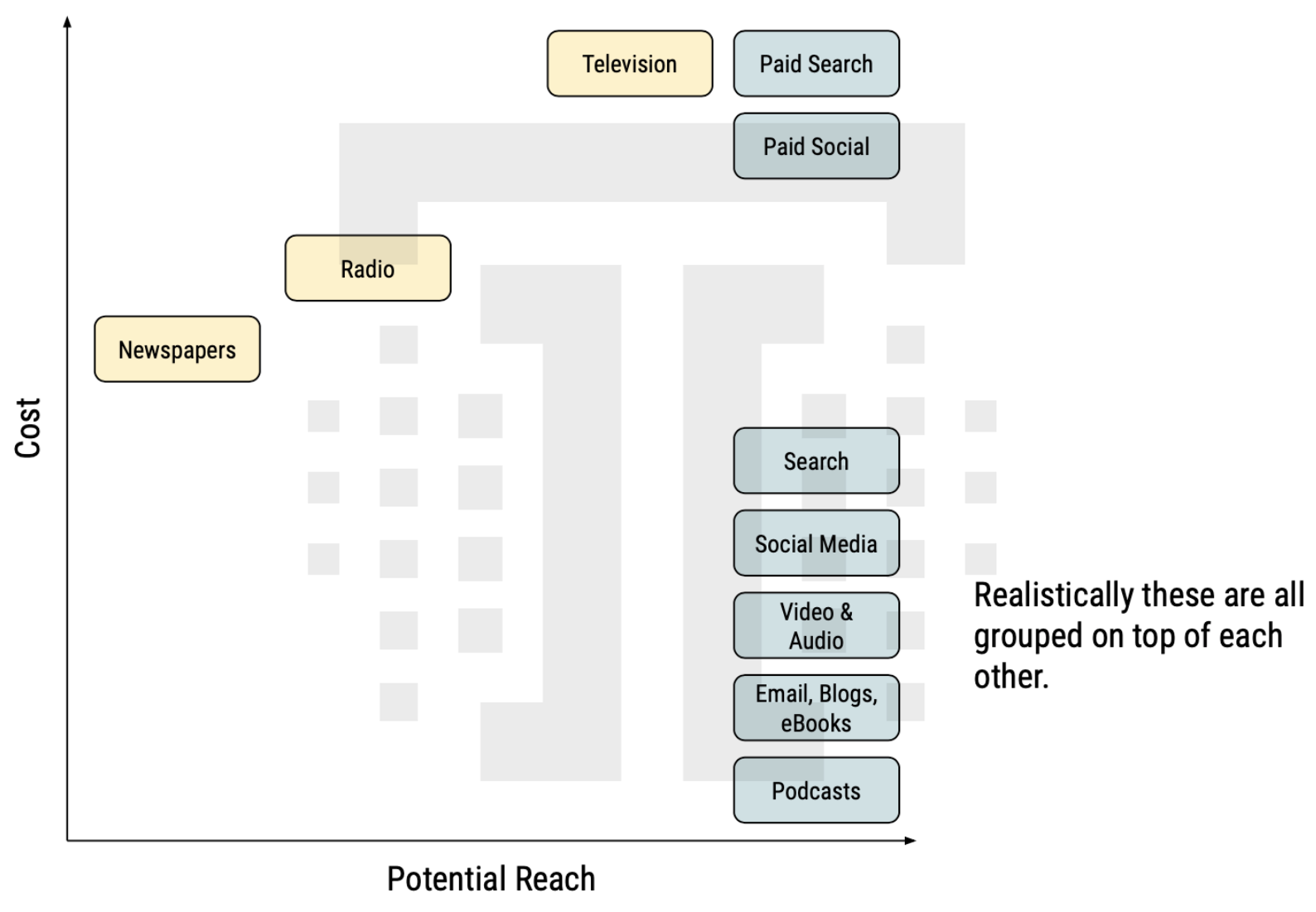
To describe media, marketers and communicators have used multiple, mixed-up terms. Here are just a few ways we’ve described the media landscape in recent years:
- Old media
- Mass media
- Traditional media
- New media
- Digital media
- Social media
- Social networking
- Citizen journalism
Of these, the differences between old media, new media, and social media are probably the most common – and the most confusion stems from the difference between new media and social media.
Why do we need to explain the difference? Why does anyone need to differentiate between new media and social media, or mass media and digital media? For many of our stakeholders – bosses, boards of directors, shareholders – the ability to articulate the different types of media also means we articulate the value of our efforts to reach our audience in different formats, as well as describe where we need to allocate resources.
Let’s dig into whatthese media terms mean, and how they’re different.
The Media Landscape

What’s the difference between old media and new media?
What constitutes old, traditional, or mass media? Formats such as:
- Print journalism
- Radio
- Television
- Books
- Out of home media
Old media is characterized mostly by cost of distribution; because it tends to be physical rather than digital, old media’s costs of production and distribution are high. Note that this isn’t specific to brands or organization sizes – the New York Times is old media, but so is the Boston University Daily Free Press or NPR. New media is characterized by its digital-first nature and its low physical costs of production and distribution. New media formats include:
- Mobile apps
- Video
- Blogs
- eBooks
- Podcasts
- Smart device apps
- Video games
- Interactive content
New media relies on digital methods of distribution such as the Internet for reach; as such, new media is far more accessible for the average individual or small organization to produce. Certainly, individuals could have and did produce homemade newsletters, but their distribution was severely limited. In the new media landscape, an individual can have as much reach, engagement, and distribution as a Fortune 10 company.
What’s the difference between new media and social media?
Social media relies on one key principle that new media doesn’t necessarily rely on: the network effect. A new media property like a blog has inherent value, whether that blog has one reader or a million readers. On the other hand, a social network like Twitter would be valueless with one user. Only as the number of users – and contributors – rise do social networks become more valuable. Robert Metcalfe, the inventor of Ethernet, coined this term the network effect, in which the value of the network as a whole increases with every new node on that network.
This is the key difference between new media and social media: social media requires the network effect, while new media does not, in order to create value.
Social media from 2003-2013 was a subset of new media, a digital-first way to reach people. As times have changed, social media became more a form of broadcast, and then paid broadcast. Today, with algorithms and advertising dominating the ways to reach consumers on social media, it’s a different animal entirely. Today’s Facebook looks very much like a digital ads platform first.
Social media today still offers the occasional chance for something small to grow big and fast without investment, but as advertising has become dominant, social media now requires just as much, if not more, investment as traditional old media in order to reach the same scale and impact. We might not invest millions of dollars in building a TV station or a printing press, but we’ll spend millions of dollars with a company like Facebook, Twitter, or LinkedIn.
This distinction matters because it defines our strategy. We still need content, something to share when we go to buy our social media advertisements. Thus, we must lock down our new media strategy first, then develop our paid social media strategy second.
Disclosure: This post has been revised and updated several times since its original publication. The most recent revision added in Metcalfe’s network effects.
You might also enjoy:
- Mind Readings: Generative AI and Addition vs Substitution of Jobs
- You Ask, I Answer: Retrieval Augmented Generation vs Fine-Tuning?
- Almost Timely News: Principles-Based Prompt Engineering (2024-02-25)
- You Ask, I Answer: Reliability of LLMs vs Other Software?
- Almost Timely News, January 28, 2024: Copyright Must NEVER Apply to AI-Made Works
Want to read more like this from Christopher Penn? Get updates here:
 Take my Generative AI for Marketers course! |


Leave a Reply